- Home
- Douglas Niles
MacArthur's War: A Novel of the Invasion of Japan Page 3
MacArthur's War: A Novel of the Invasion of Japan Read online
Page 3
Five hours later, Douglas MacArthur—mirrored sunglasses, old and worn khaki uniform—walked side by side with Chester Nimitz—big cigar, equally old and worn khaki uniform—through the ground floor of Queen Emma’s Summer Palace. Behind them trailed a larger group, three aides for each commander, walking ten feet behind like chaperones, valiantly pretending they weren’t listening in and didn’t even want to.
MacArthur leaned over toward Admiral Nimitz as they walked and said sotto voce, “I’ve always thought this is a nice enough old Victorian, but it’s not a palace, is it? Not nearly up to Philippine standards. Living here would remind me of the old story—I think it’s Mark Twain—of the man who took a ride in a sedan chair from which practical jokers had stolen the seat. ‘What did you think?’ asked his friends. ‘If it hadn’t been for the honor and the glory of the thing, it was mighty like walking,’ he replied.”
Nimitz laughed politely. Not quite the smooth office tactician or diplomat of his counterpart in the Southwest Pacific, Nimitz had the home field advantage but was battling an opponent of greater maneuverability and speed. It was clear that his bonhomie was somewhat forced, whereas MacArthur could easily keep it up all day long.
Once the two men were seated and another Filipino steward had poured coffee, it was predictably Nimitz who cut short the diplomatic niceties and got to business. “So you came to my island to recommend to a bunch of senators that I should be fired, right?”
MacArthur spread his hands wide in a gesture of peace. “The imminent danger to Hawaii requires—”
“Imminent danger to Hawaii, my ass! Goddamn it, MacArthur, cut the bullshit and let’s talk turkey. You want to try to cut my goddamn balls off, go right ahead, but don’t expect me to stand there with my legs spread waiting for you. I’ve been around this man’s navy for a year or two, and I may or may not be able to beat you, but I can damn sure promise that by the time I finish with you, you’ll know you’ve been in a fight. And the only goddamn reason I haven’t already come out swinging is that we’ve got a common enemy, in case you’ve forgotten, the stinking goddamn Japs, and I’m not going to cause an unnecessary internal war unless it goddamn well becomes necessary. Am I making myself clear?”
MacArthur smiled his most ingratiating smile. “Clear as water, Admiral. There is no reason that MacArthur and Nimitz cannot find common ground on which to stand. After all, as you so wisely point out, we battle the same ultimate enemy, the Japanese, and we serve the same great nation, having sworn the same oath to preserve, protect, and defend its glorious Constitution.”
“So what did you have in mind?”
“Pardon me?”
“What did you have in mind?”
“If I am not very much mistaken, it was Admiral Nimitz who asked for this meeting, was it not?” replied the four-star general.
The four-star admiral put a cigar between his teeth and lit it. “You’d never have agreed to the meeting unless you wanted it. You’ve got something to put on the table.”
“And you don’t, Admiral?”
“Let’s see your hand. I call.”
MacArthur looked with cool amusement at his navy counterpart. “Very well, Admiral. You understand, of course, that there is nothing personal in all this. It’s strictly business.”
Now it was Nimitz’s turn to smile, and it was an expression as cold as anything MacArthur had produced. “I’m disappointed, MacArthur. If you believe that, you aren’t nearly as smart as you think.”
MacArthur pulled back. He was not used to having his ego punctured so casually, to having his intelligence questioned in such a cavalier manner.
Nimitz looked at him knowingly. “See? If you don’t know by now that people take it personally no matter how you mean it, you aren’t as smart as you think.”
MacArthur could only smile ruefully. “Point taken, Admiral.”
He lifted a finger, and Sutherland came forward to hand a manila file folder to MacArthur. “Shall we sit down?” MacArthur asked Nimitz. He gestured toward the dining room of the Summer Palace. The two men went inside and sat down. The others waited outside the room. Sutherland was standing just inside the door, not quite within earshot but with any other information MacArthur might need on short notice.
MacArthur opened his folder and began to talk. “Admiral, there can be only one supreme commander in the Pacific. Not two. It’s you, or me, or a third person to replace both of us. The navy thinks it should be a navy theater, the army an army theater, and the marines and the Army Air Corps wish they could become independent of the both of us and claim they have a better right to the theater than either of the senior services. Right now, the navy has to explain two humiliating defeats in a row—Pearl Harbor and Midway. The only success—even marginal success—in the entire Pacific has been in the Philippines. Since America must return to Japan by way of the Philippines, for our solemn word has been pledged, these circumstances mean that the navy has lost its command credibility, and leadership of the Pacific Ocean should pass to the army Supreme Commander.”
Nimitz’s mouth worked, the only place where his emotions showed. But when he opened his mouth to speak, only calm words came out. “Well, General, I can understand how you’d reach that conclusion. But what were you expecting me to do? Roll over and play dead?”
“In a word, yes.” MacArthur held up his hand to stave off the expected interruption. “The American public expects heads to roll over this. Not just yours, but those of Admirals Spruance and Fletcher at a minimum, and Halsey for falling sick at the wrong moment. Coming as it does so soon after Pearl Harbor, the Midway debacle is the worst possible situation that could have befallen the United States Navy. When MacArthur’s voice is added, it will be as the last pebble that sets off the unstoppable avalanche. And who will be left to run the navy? You and I cannot sit idly by and let that happen.”
Nimitz chuckled. “You’re the one holding a knife at my throat. All you have to do is put it down and walk away.”
“And then what?” MacArthur asked, waving his arm in a great melodramatic flourish. “Will Congress fail to investigate Midway merely because this one man fails to speak up? No, my brother-in-arms.” He shook his head sadly. “No, Judgment Day is fast approaching. If MacArthur does nothing, the navy loses and there is still no unified command. If MacArthur acts, the navy suffers the same damage, but command in the Pacific is unified, some small benefit coming out of tragedy otherwise unalloyed. I am doing you no harm that would not befall you and your men regardless. I am merely making sure that the outcome is not a complete loss in our primary war against the ruthless Jap.”
“Well, thank you so goddamn much,” Nimitz replied. “I’m glad you have the navy’s interests at heart. Otherwise I would have thought you were a cast-iron son of a bitch.”
Sutherland’s eyes narrowed with anger, making it clear he was within earshot.
MacArthur, on the other hand, seemed unfazed. “Oh, a certain amount of being a cast-iron son of a bitch comes with the territory when you pin on a star,” he said. “I imagine the same is true of you.”
“Goddamn right it is. But I still haven’t heard anything but your extortion threat. You announce you’re going to stab me in the back—”
“In the front, Admiral, if you please,” interrupted MacArthur, still smiling graciously.
“—Back, front—stab me, and tell me it’s for the good of the service. What do you want next? Am I supposed to kiss your four-star ass? I’m wearing four stars myself, in case you hadn’t noticed.”
“Admiral, you misunderstand MacArthur’s intent completely. ‘Extortion’ is an ugly word. Not at all appropriate. This was simply an expression of one potential direction that could be followed. Instead, the important thing right now is to save the careers of the fine officers underneath you and to minimize the damage to your own career.”
“And how the hell do you propose to do that?” growled Nimitz.
“It’s all in how the tale is told,” replied MacArthur.
“One brave man assuming total responsibility, even though that responsibility clearly is not his, protecting others by his own sacrifice, and as a result finding himself not a man without a career but rather a man whose career can be brought to glorious life once again, especially with the myriad challenges and opportunities this terrible conflict presents to the superior military talent.”
“Let me get this straight. You’re suggesting I volunteer to play fall guy, take everything on my shoulders to protect my subordinates—”
“And superiors, I should add.”
“You mean King? How the hell does King get blamed for Midway? It’s my operation.”
“Inadequate intelligence? Compromise of cryptographic capabilities? Promoting the dual command structure in the Pacific? Pushing too hard for a navy success after Pearl Harbor, a public relations strategy masquerading as a military one? Those are a few quick thoughts. I could come up with more without too much effort, I believe.”
“So I take the fall, and then my reputation gets … rehabilitated? And how do you expect to accomplish that particular feat of legerdemain, General? I don’t think you have that kind of clout with the navy.”
“Not with the navy, true. But MacArthur is not without friends in the United States Senate, and even in the White House. All of MacArthur’s influence and discretion can be exercised on your behalf, and on behalf of the navy. That is, if you vacate the field voluntarily.”
Nimitz scratched his chin. It was too early for the firestorm to have hit, but the early signs were there. Newspaper articles condemning “navy failures,” questioning the “American will to win,” arguing for the replacement of “superannuated admirals not fit for modern commands.”
“I’m going to have to think on this, MacArthur,” he said, standing up. “For one thing, I’m not at all sure I can trust you. When are you meeting with your senators?”
“The airplane arrives tonight. We will meet tomorrow at 1000. If I have your answer by 0900 I will be able to have everything ready for the story we both want to give them.”
“All right, MacArthur. I’ll give you an answer by 0900. But I’ll tell you right now, I’m tempted to tell you to shove your whole plan up your keister.”
MacArthur bowed his head slightly in acknowledgment. “If such an ultimatum were to be presented to Douglas MacArthur, the volcanoes would erupt and the ground would shatter with the force of earthquakes. But in the end, what is necessary for the common good would win out.”
“Well, the first part sounds about right. I have to think about this for a while before I decide whether you’re right about the second part.”
“I have complete and serene confidence that you will come to the correct decision. It’s of vital national importance that MacArthur and Nimitz have met face-to-face,” MacArthur said. “Our nation depends on tight, positive cooperation between army and navy. I am grateful for your time today.”
Nimitz stood up, and MacArthur followed. The two men shook hands. “General MacArthur, I’m going to ask you and your party to wait here about half an hour, just to shake off any busybodies who might be lurking in the bushes. After that, your drivers will take you back to your house. And after your meeting, I do still expect you to get the hell off my island.”
TWO
Philippines
• THURSDAY, 11 JUNE 1942 •
POW CAMP CABANATUAN #1, LUZON, PHILIPPINES,
2140 HOURS
Johnny Halverson couldn’t sleep. The irregular bamboo slats dug into his bony frame. He twisted around to find a more comfortable position but accidentally kicked Andy Sarnuss, who shoved Johnny’s leg away. Six men slept—or tried to sleep, in Johnny’s case—on the floor of a cramped square room so small somebody’s foot was always in your face. There weren’t any bunks or mattresses. Only two of the men owned a blanket, which made them rich by camp standards. All of them had dysentery. Almost every night someone didn’t make it to the latrine in time.
Their straw hut prisoner barracks, called behais, had twenty rooms just like it in each tier, all crammed full of prisoners in similar shape. Others, rows of them, comprised Camp #1, and there were other camps over the horizon but not far away. As an officer—he was a captain—Johnny was treated marginally better than enlisted men were, but not by much.
Johnny’s eyes were wide open, but he couldn’t see a thing. Indoors on this moonless night, eyes were useless. His ears, however, had their sensitivity heightened by his inability to see. In the dark, he could hear the drone of the invading Mosquito Air Force seeking out tonight’s targets. He heard the rumbling stomachs of his fellow dysentery sufferers. By now, he felt he could recognize each man by his borborygmi. In the distance he could hear voices, loud and somewhat drunk. The Japs were having a party. He hoped they wouldn’t get the idea of coming into the camp. Bad things happened.
Taste didn’t provide much value. What food they got was bland and tasteless. Occasionally someone would catch and cook a rat. Rat was tasty, if you were hungry enough.
Touch was just reporting pain. His body was a mass of sores, bruises, and small cuts. His gums were swollen and his teeth were loose from scurvy. His testicles had swollen to the size of baseballs, the result of beriberi.
The smell was almost exclusively of shit. Shit was omnipresent. During the day, the prisoners dug latrine trenches using the few tools the Japanese provided. They stopped digging at night, but use went on twenty-four hours a day. It was a losing battle.
Shit, Johnny had concluded, was the fundamental byproduct of life. It might even be the fundamental purpose of life. Human beings were machines designed by God for the sole purpose of converting food to shit. Shit thou wert and shit thou will be. Shit without end, amen.
Johnny’s own stomach made its intestinal rumble. It was time to head outside before he fouled their cozy little nest.
He sat up and slowly got to his feet. In the absolute darkness, he crept forward, hands feeling for the wall, then along the wall for the corridor opening. He shuffled his feet to avoid stepping on anyone, but he drew a few mumbles and moans as he bumped first one, then another.
A low whisper: “Latrine?” It was Andy.
“Yeah,” Johnny whispered back.
Johnny heard movement sounds, and a probing hand found his shoulder.
“Better to go together,” Andy whispered. “It can be a son of a bitch to find your way there and back in the dark.”
That was definitely true. Men had died from getting their directions mixed up and wandering too close to the fence. “Sure,” he whispered back.
Blind Johnny stepped into the dirt corridor. Blind Andy, hand on Johnny’s shoulder, followed. Johnny kept his hand on the right wall and followed it to the entrance.
“All we have to do is follow our nose,” Andy said, giggling at his own joke.
The smell outside was different. Shit predominated, but the air was also heavy with moisture. It felt as if a storm was approaching. Rain was good news. A storm was mixed news. A typhoon was bad.
There were a number of men—in the dark, Johnny couldn’t tell how many—also making the midnight latrine run. There was the occasional cursing when one of the trench sides collapsed, dragging a foot into the muck. That was routine. Then he heard a squishing sound followed by louder cursing as someone else lost balance and fell unexpectedly. Neither Johnny nor Andy laughed. It had happened to both of them. “There’s somebody who hopes it’ll rain,” Andy said.
As they started back, Andy said nervously, “Think it’ll be a bad one?”
“Can’t tell. Hope not. It’s not like I can do anything about it, though.”
Andy snorted. “Are you still down in the dumps? An attitude like that will kill you. You can get under cover. You can hide behind somebody else. There are a lot of things you can do. Watch me. I’m going to get through this. Do what I do. You’ll be okay.”
The atmosphere felt like it had a charge in it. Johnny felt a little better, better than he had in weeks. “You know
, you’re right, Andy. Maybe we can make it through this.”
“Damn straight I’m right. You gotta believe we’re going to get through this. The Japs won’t beat us. We’ll make it outta here.”
“Maybe, but not unchanged,” said Johnny. “Not unchanged.”
Andy made a spitting sound. “Who the fuck cares, as long as I’m alive?”
“I guess you’re right,” said Johnny. “Might as well look on the bright side. This will scare the hell out of my grandchildren someday.”
“Yeah? Grandchildren? Naa, I’m more the confirmed bachelor type.” He leered, unconvincingly.
As they started to make their way back, the first crack of lightning briefly outlined the compound, but the afterimages shone so bright and so yellow they followed wherever he turned his head. He felt in front of him until he found a straw wall. A little more probing and he was pretty sure he knew where he was. Andy offered a running commentary and advice on their route back. “No, I think it’s the next hut to the right. I really do.” The sound of rain was heading their way.
“I’ve been counting since we left. One more straight ahead and we’re there. Trust me on this. Wrong choice and we get soaked,” said Johnny.
“Next hut to the right, damn it! I’m telling you, turn right!” Andy insisted.
It was the one straight ahead.
The storm opened with a torrent of water. Johnny gasped when the water hit him and then stopped when he realized he could feel the dirt and filth sliding off his body. The water was uncomfortable at first, then more bearable, then pleasant, the first pleasant body sensations he’d felt in weeks or even months.
“Okay, you were right. Let’s go back,” said Andy urgently.
“Doesn’t it feel good to be clean? Stand here for another minute.”
“Fucking Christ! I’m getting soaked! I don’t want to get fucking pneumonia! Let’s get inside, okay?”
Grudgingly, Johnny led again, and they made it to the entrance of their hut in a few minutes. The storm was getting worse.

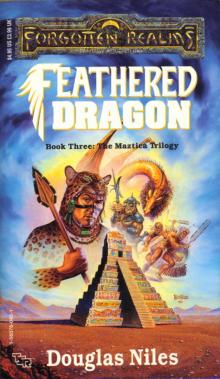 Feathered Dragon mt-3
Feathered Dragon mt-3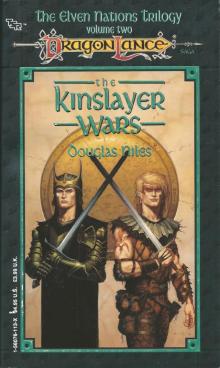 The Kinslayer Wars
The Kinslayer Wars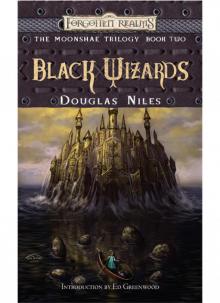 Black Wizards
Black Wizards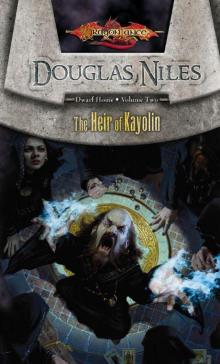 The Heir of Kayolin dh-2
The Heir of Kayolin dh-2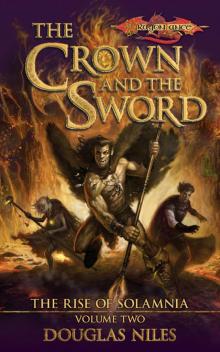 The Crown and the Sword tros-2
The Crown and the Sword tros-2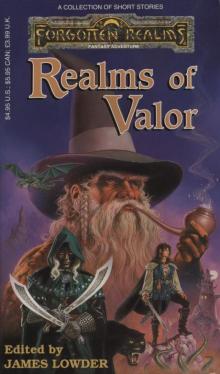 Realms of Valor a-1
Realms of Valor a-1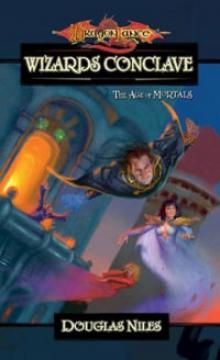 Wizards Conclave aom-5
Wizards Conclave aom-5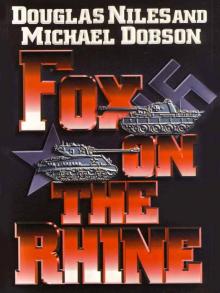 Fox On The Rhine
Fox On The Rhine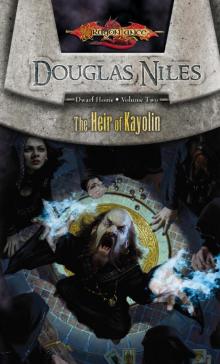 The Heir of Kayolin
The Heir of Kayolin Fox at the Front (Fox on the Rhine)
Fox at the Front (Fox on the Rhine)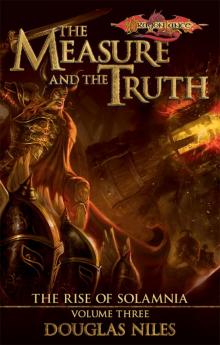 Measure and the Truth tros-3
Measure and the Truth tros-3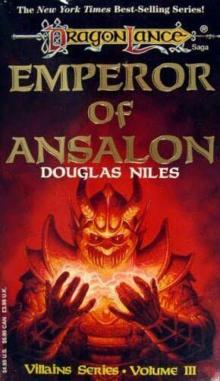 Emperor of Ansalon (d-3)
Emperor of Ansalon (d-3)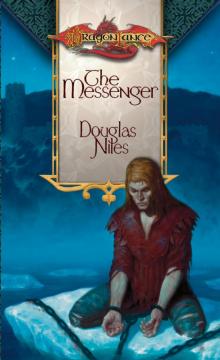 The Messenger it-1
The Messenger it-1 The Druid Queen tdt-3
The Druid Queen tdt-3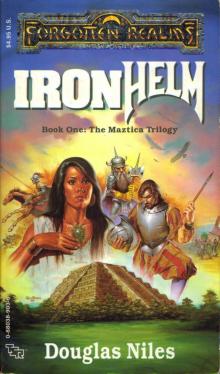 Ironhelm mt-1
Ironhelm mt-1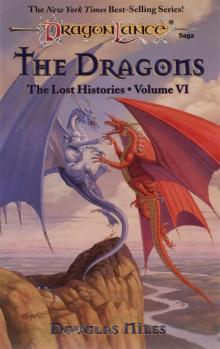 The Dragons lh-6
The Dragons lh-6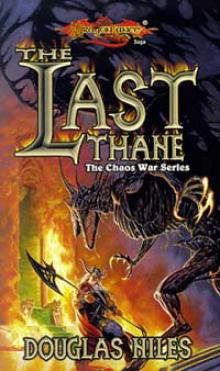 The Last Thane cw-1
The Last Thane cw-1 Circle at center sc-1
Circle at center sc-1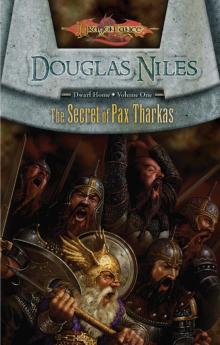 Secret of Pax Tharkas dh-1
Secret of Pax Tharkas dh-1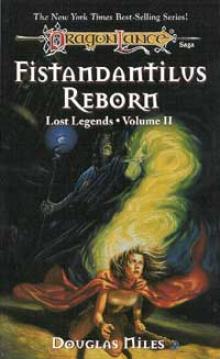 Fistanadantilus Reborn ll-2
Fistanadantilus Reborn ll-2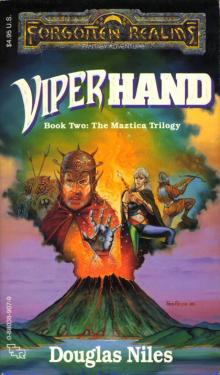 Viperhand mt-2
Viperhand mt-2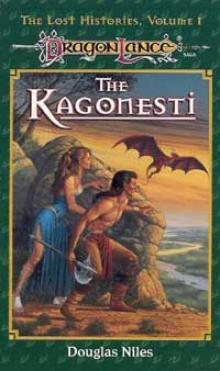 Kagonesti lh-1
Kagonesti lh-1 The Druid Queen
The Druid Queen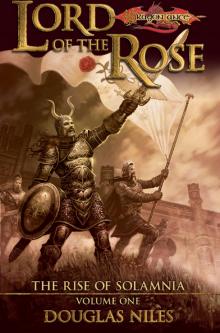 Lord of the Rose tros-1
Lord of the Rose tros-1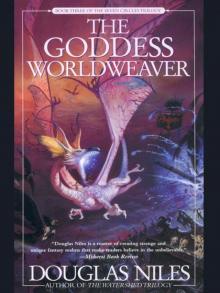 Goddess Worldweaver sc-3
Goddess Worldweaver sc-3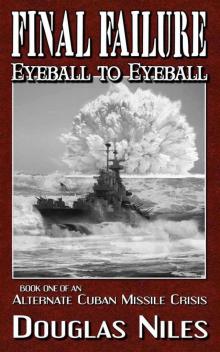 Eyeball to Eyeball (Final Failure)
Eyeball to Eyeball (Final Failure)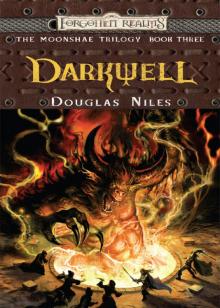 Darkwell
Darkwell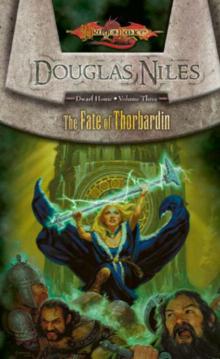 Fate of Thorbardin dh-3
Fate of Thorbardin dh-3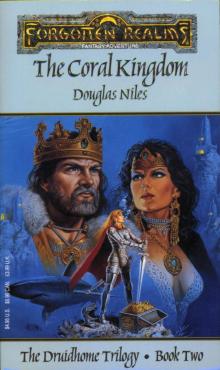 The Coral Kingdom tdt-2
The Coral Kingdom tdt-2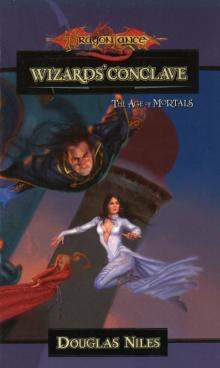 Wizard's Conclave
Wizard's Conclave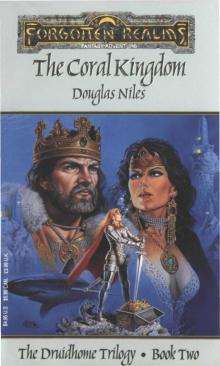 The Coral Kingdom
The Coral Kingdom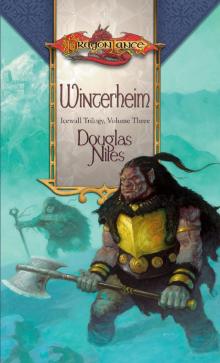 Winterheim it-3
Winterheim it-3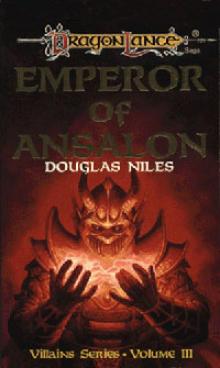 Emperor of Ansalon v-3
Emperor of Ansalon v-3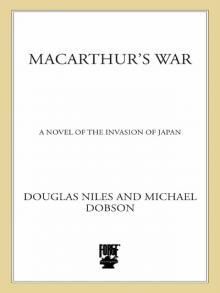 MacArthur's War: A Novel of the Invasion of Japan
MacArthur's War: A Novel of the Invasion of Japan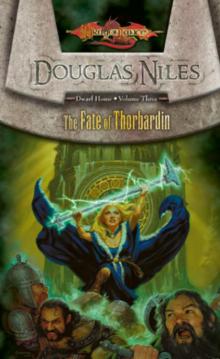 The Fate of Thorbardin
The Fate of Thorbardin The Rod of Seven Parts
The Rod of Seven Parts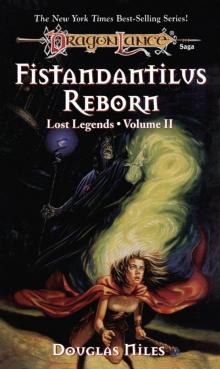 Fistandantilus Reborn
Fistandantilus Reborn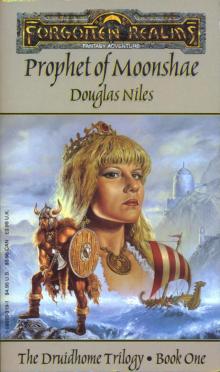 Prophet of Moonshae tdt-1
Prophet of Moonshae tdt-1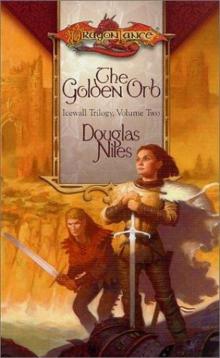 The Golden Orb i-2
The Golden Orb i-2